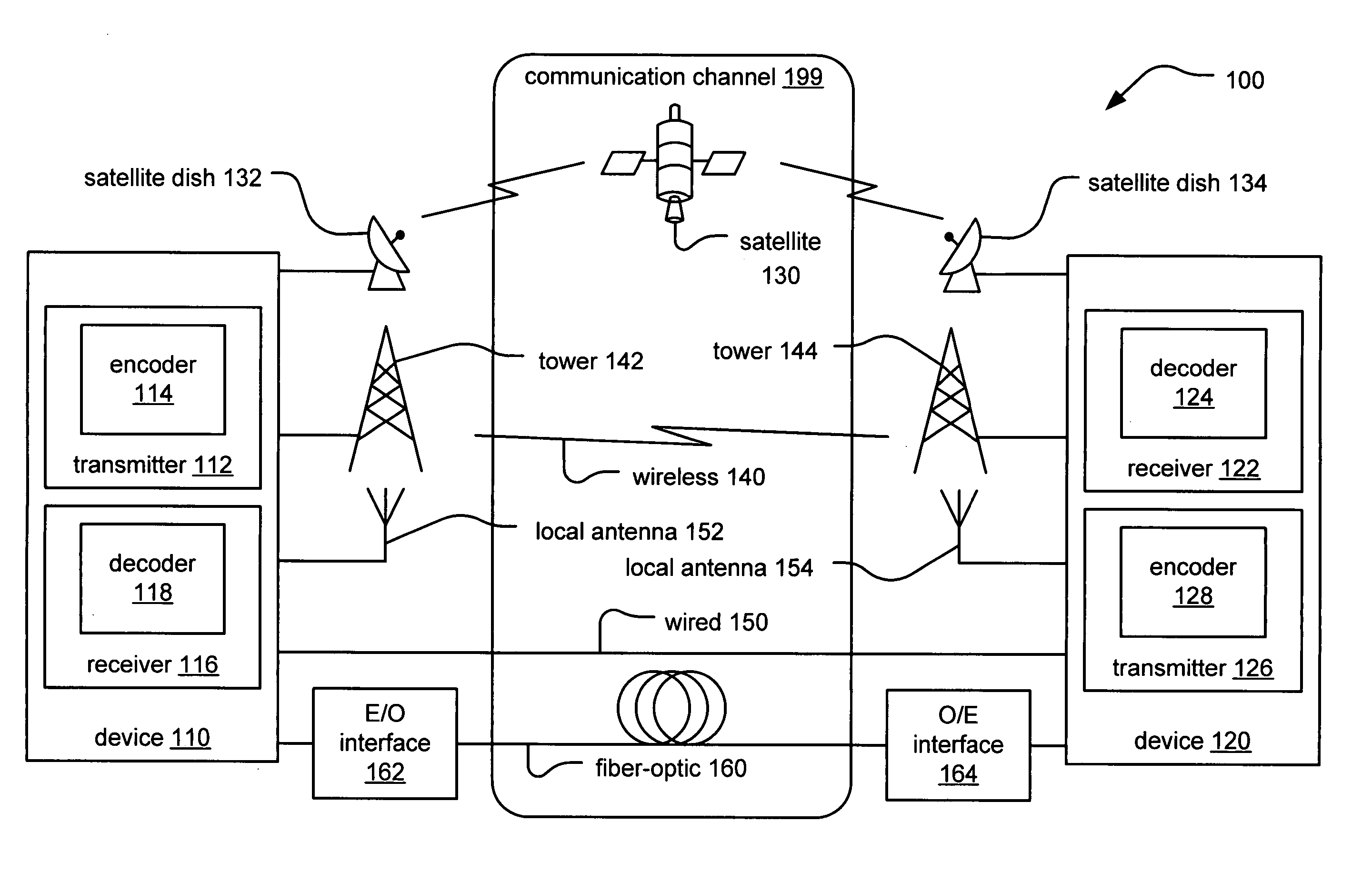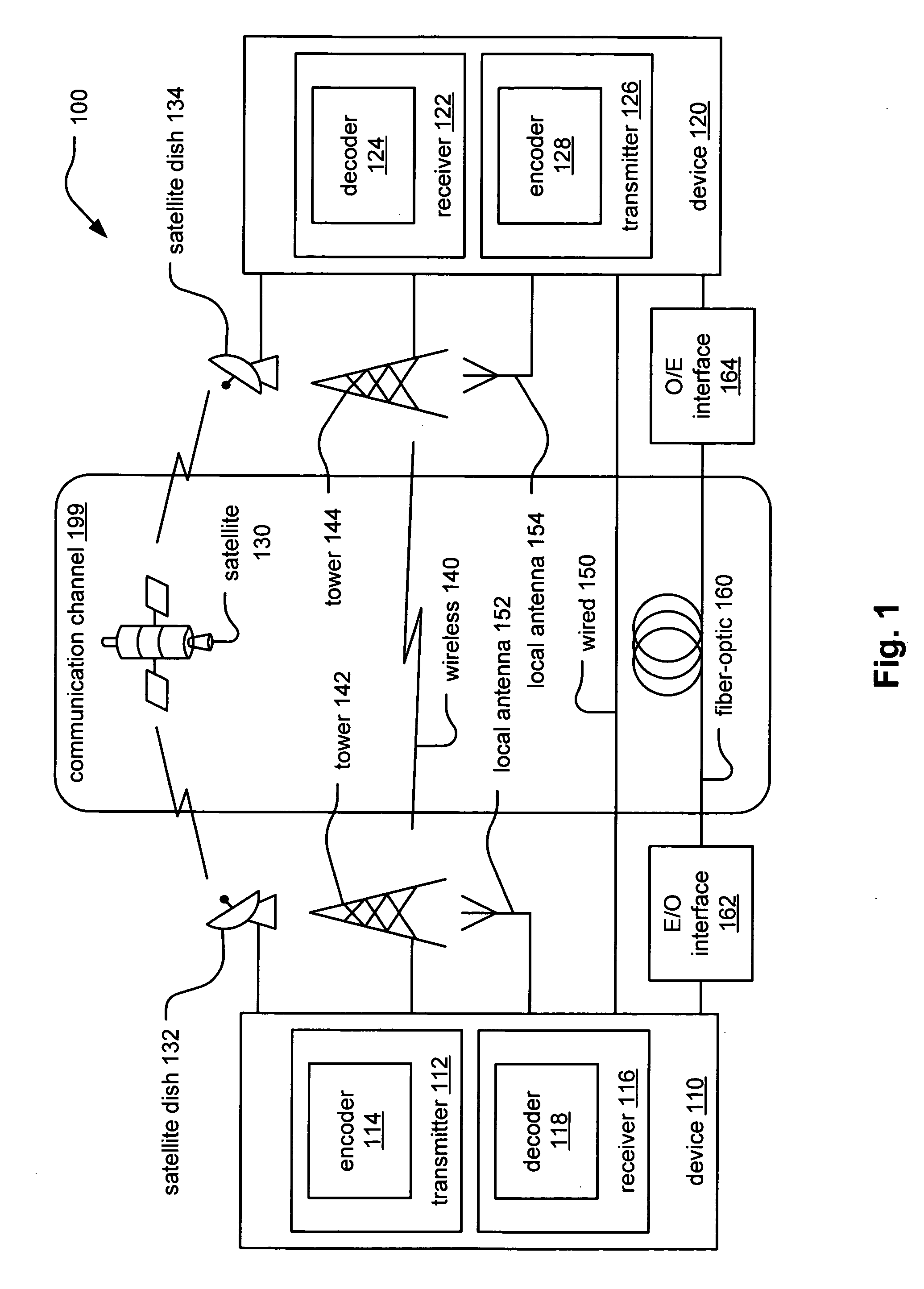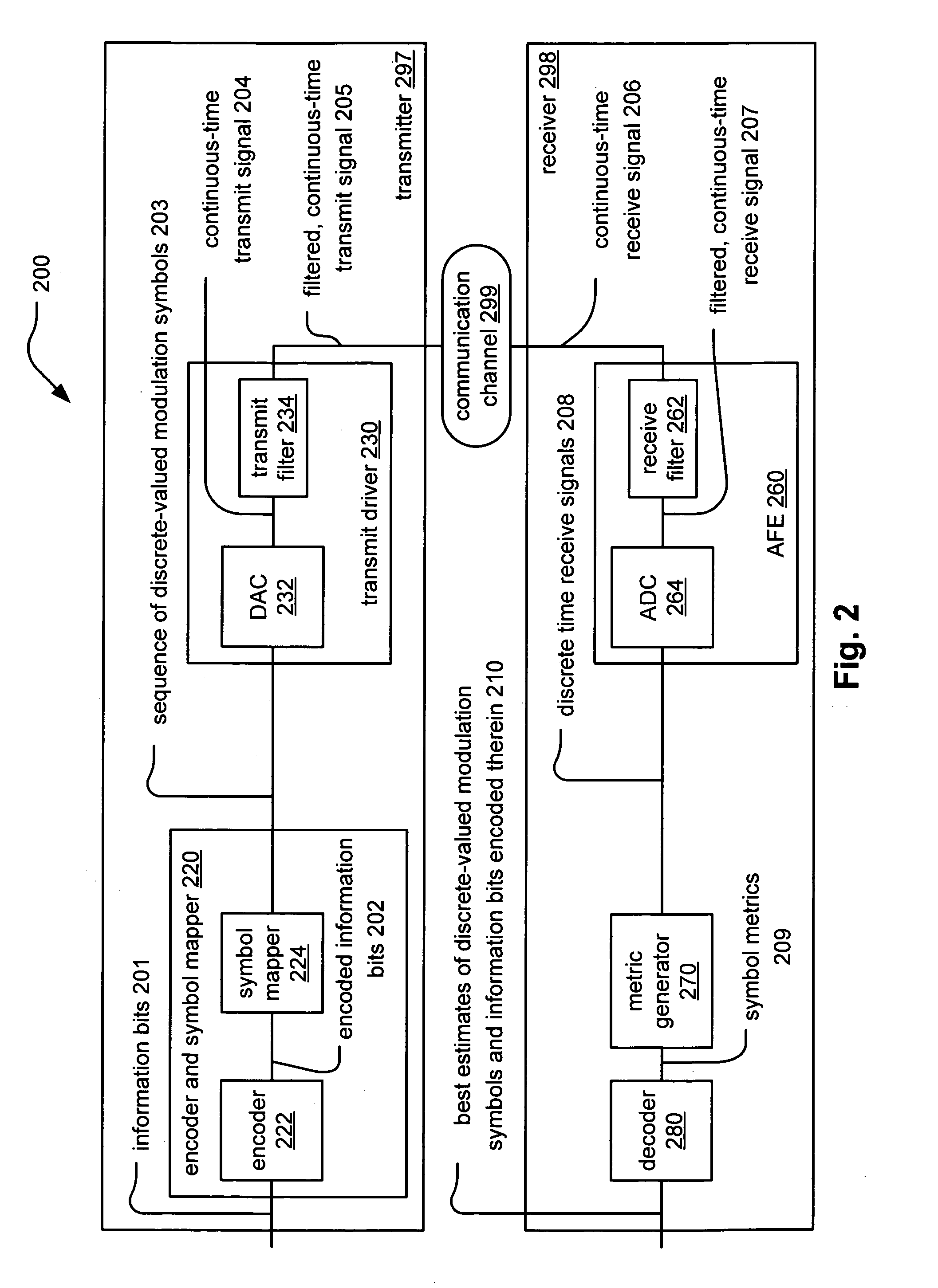Efficient front end memory arrangement to support parallel bit node and check node processing in LDPC (Low Density Parity Check) decoders
a front-end memory and ldpc technology, applied in the field of communication systems, can solve the problems of large processing and computation requirements, data management, and relatively complex numerically burdensome calculations, and prevent their implementation in systems with very tight design budgets
- Summary
- Abstract
- Description
- Claims
- Application Information
AI Technical Summary
Problems solved by technology
Method used
Image
Examples
Embodiment Construction
[0068] Various aspects of the invention may be found in any number of devices that perform decoding of LDPC (Low Density Parity Check) coded signals. In some instances, the decoding approaches and functionality presented herein are operable to decode and process signals that have been generated and that comply with the DVB-S2 (i.e., DVB-Satellite Version 2) standard. In addition, the decoding approaches and functionality presented herein may also be adapted to decode and process signals that have been generated and that comply with draft standards and recommended practices that have been provided by the IEEE P802.3an (10GBASE-T) Task Force.
[0069] Generally speaking, the decoding approaches and functionality presented herein may be found in any number of devices that perform processing of LDPC coded signals and / or other coded signal types. Sometimes, these devices are operable to perform both transmit processing (including encoding) as well as receive processing (including decoding)...
PUM
 Login to View More
Login to View More Abstract
Description
Claims
Application Information
 Login to View More
Login to View More - R&D
- Intellectual Property
- Life Sciences
- Materials
- Tech Scout
- Unparalleled Data Quality
- Higher Quality Content
- 60% Fewer Hallucinations
Browse by: Latest US Patents, China's latest patents, Technical Efficacy Thesaurus, Application Domain, Technology Topic, Popular Technical Reports.
© 2025 PatSnap. All rights reserved.Legal|Privacy policy|Modern Slavery Act Transparency Statement|Sitemap|About US| Contact US: help@patsnap.com



